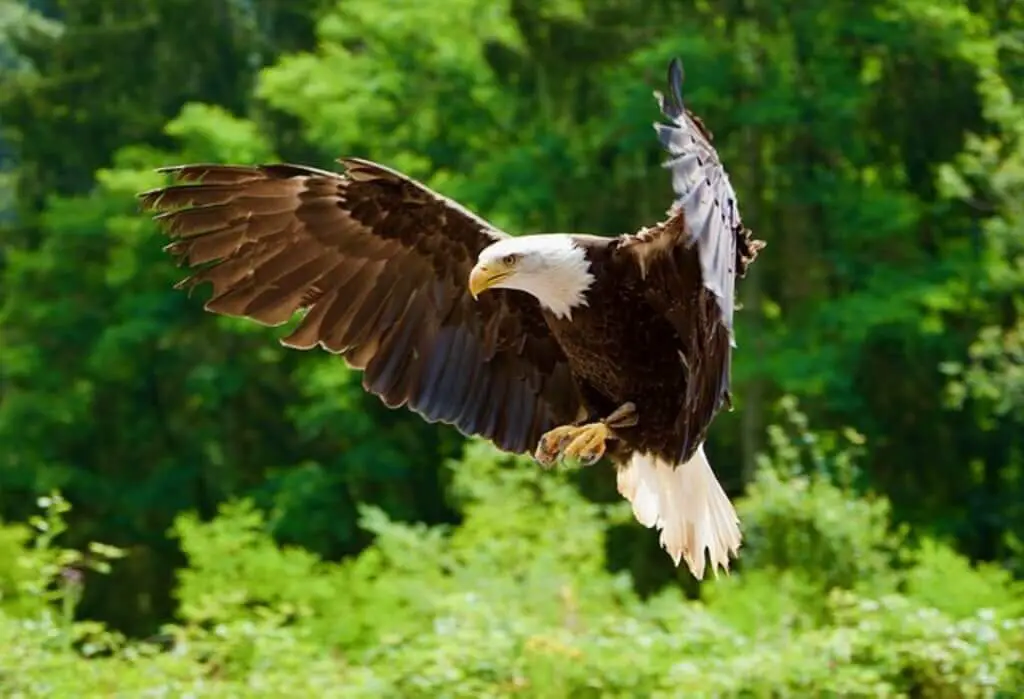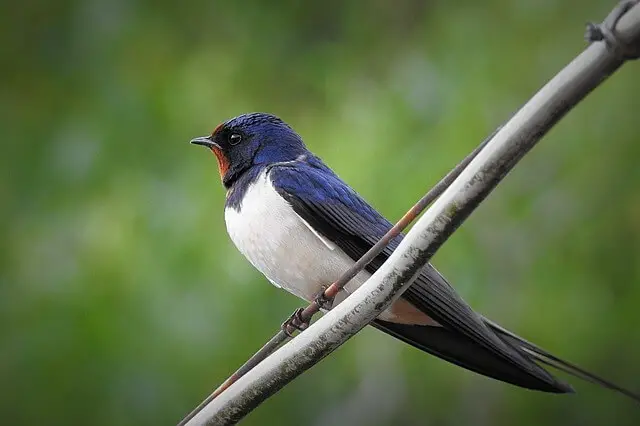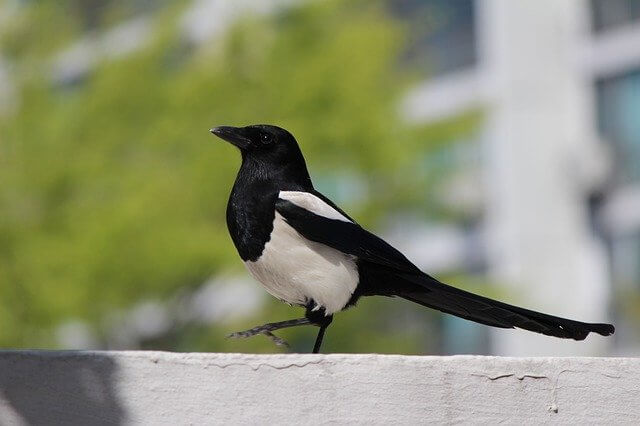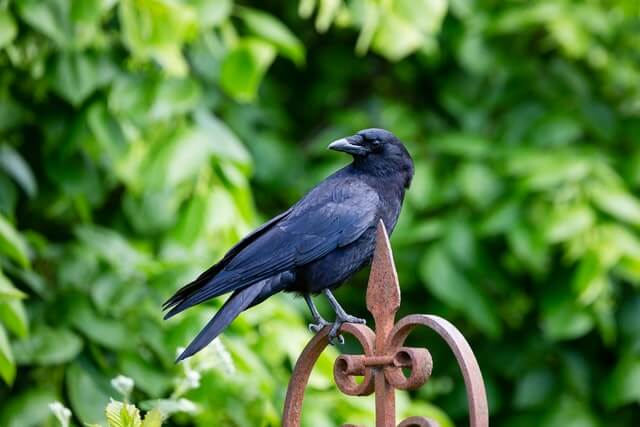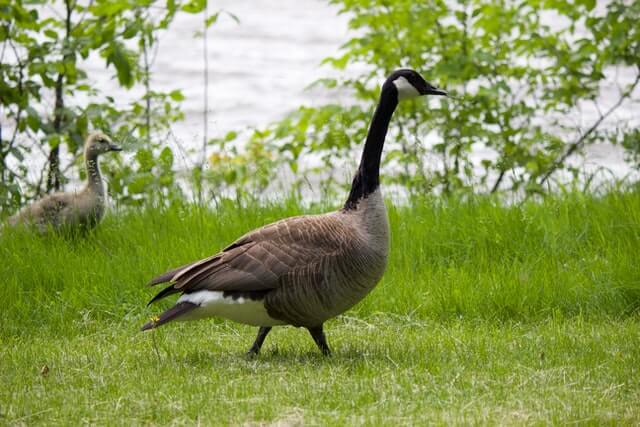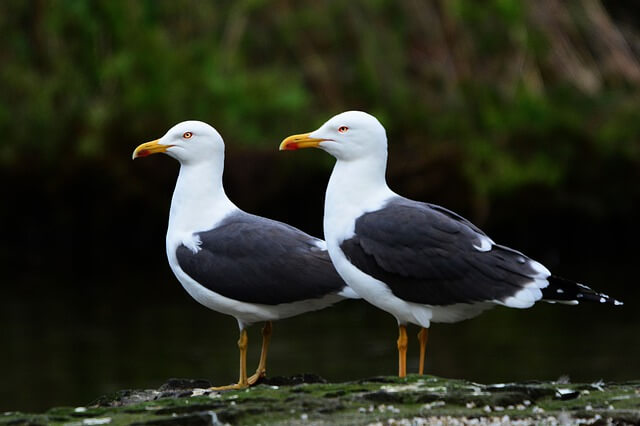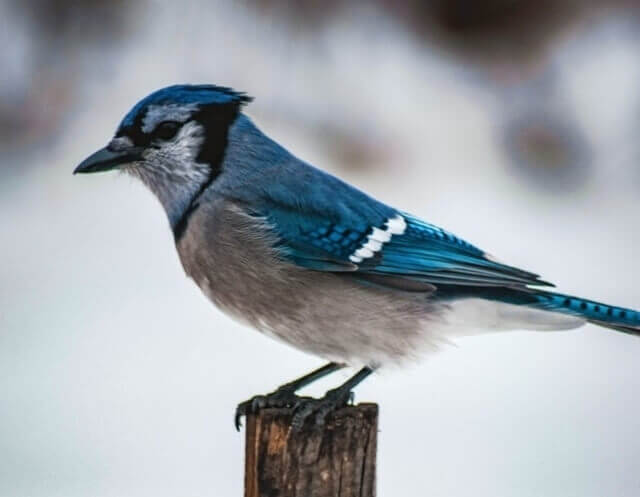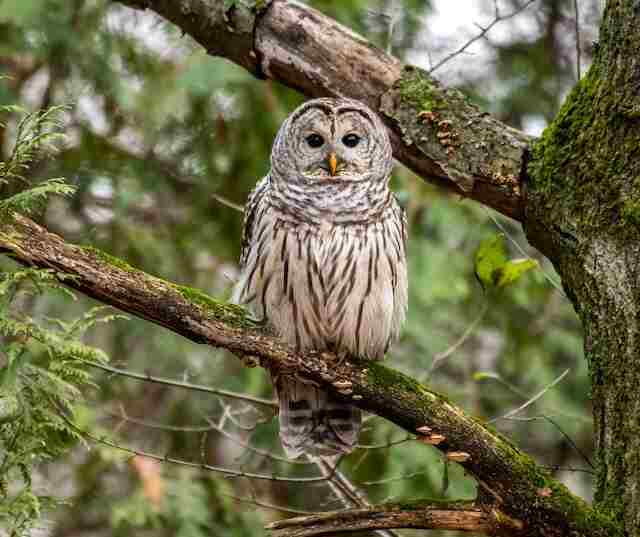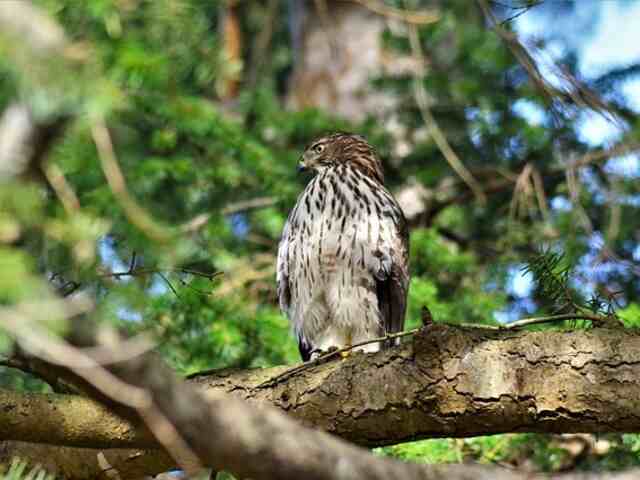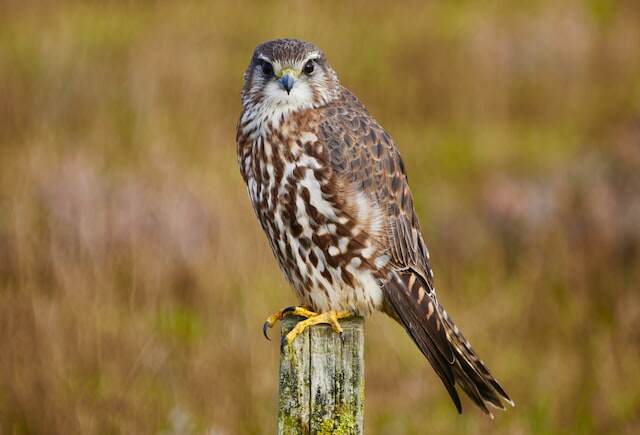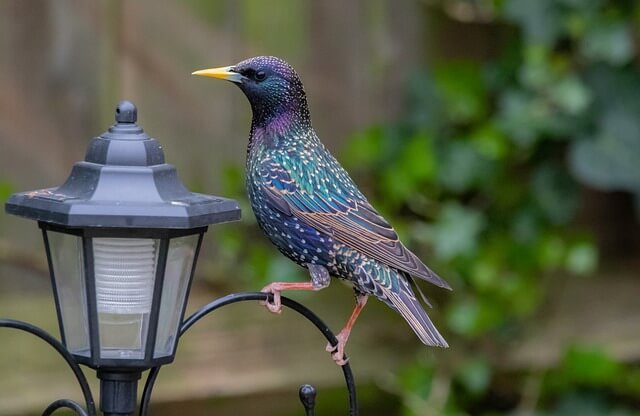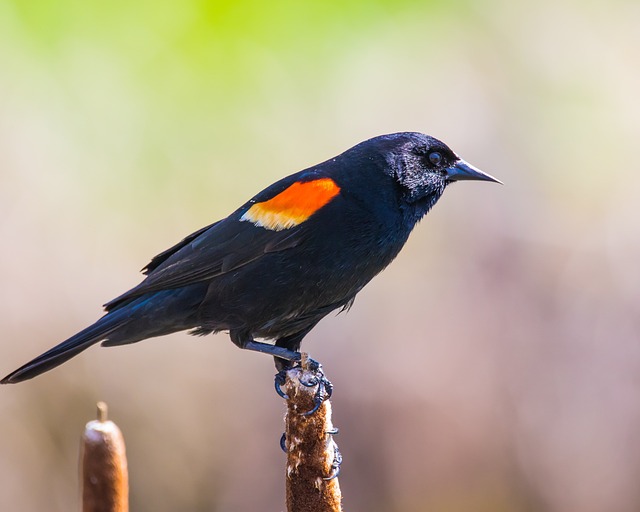If you’ve ever experienced a bird dive-bombing you, you know how unsettling it can be. While most birds are harmless and will fly away when approached, some species are more aggressive and territorial, swooping down suddenly to protect their nests or young.
In this article, we’ll explore the birds known for dive-bombing people, why they exhibit this behavior, and essential tips for staying safe if you encounter them. Additionally, we’ll discuss natural predators of these birds and their role in controlling populations.
Whether you’re a bird-watcher, hiker, or simply enjoy nature, join us to discover more about these intriguing and occasionally intimidating creatures.
Table of Contents
Types of Birds That Dive Bomb People
Mockingbirds
Mockingbirds are known for their aggressive defense of their nests and territory, and during the breeding season, they may dive-bomb people that get too close to their young or nesting area. They are especially territorial during the early morning and late afternoon hours. These small, agile birds are skilled fliers and can quickly dart and maneuver in the air.
While their dive-bombing behavior can be startling and even painful, it’s important to remember that they are simply trying to protect their young and do not pose any serious threat to people. To avoid being dive-bombed by mockingbirds, it’s best to keep a safe distance and not disturb their nests or young.
Read more: How to Attract Mockingbirds to your yard
Swallows
Swallows are a group of birds that are well-known for their agile flight and aerial acrobatics. During the breeding season, some species of swallows can become quite aggressive in defending their nests and territory. This can sometimes result in them dive-bombing people who come too close, especially if they feel that their young are threatened.
Swallows are known for their precision and speed, and they can be quite intimidating when they swoop down at high velocity. However, it’s important to remember that these birds are not attacking people out of malice, but rather to protect their young. It’s best to avoid getting too close to swallow nests during breeding season to minimize the chances of being dive-bombed.
Read more: How to Attract Swallows to my yard
Magpies
Magpies are a type of bird that is known for its distinctive black and white plumage, as well as its tendency to dive-bomb people during the breeding season. These birds are highly territorial and will aggressively defend their nests from any perceived threats, including people who get too close. Magpies can be quite persistent in their attacks, swooping down repeatedly and sometimes making contact with their targets.
While these attacks can be intimidating, it’s important to remember that magpies are not trying to harm people, but simply protecting their young. It’s best to avoid disturbing their nests or walking through their territory during the breeding season to minimize the risk of being dive-bombed.
Read more: How to Attract Magpies to your Garden? (In 4 Easy Steps!)
American Crow
American crows are highly intelligent and social birds, known for their distinctive “caw-caw” calls and black feathered appearance. During their breeding season, they become quite territorial and are known to aggressively defend their nests and surrounding areas from perceived threats, including people.
Crows have been known to dive-bomb and attack people who come too close to their nests, often striking them on the head and making loud noises. While these attacks can be startling and even painful, they are generally not dangerous to people. It’s best to avoid disturbing crows during their breeding season and to give them plenty of space to avoid being dive-bombed.
Read more: How to Attract Crows to your backyard
Canada Goose
Canada Geese are known to be territorial birds, and during their breeding season, they can become quite aggressive and may even dive-bomb people. This behavior is most commonly observed when people get too close to their nests or goslings, which the geese see as a threat.
While Canada Geese are typically not dangerous, their wingspan and the force of their dive-bombing can be alarming to those who are not used to encountering them. It’s important to keep a safe distance from nesting or young Canada Geese to avoid any potential harm. In some cases, parks and other public areas will post signs warning visitors of the potential for dive-bombing geese.
Gulls
Gulls are another bird species that are known to dive-bomb people, especially when they feel their territory or food source is being threatened. Some species of gulls, such as herring gulls and great black-backed gulls, are particularly notorious for this behavior. They may also dive-bomb to steal food from people, especially in crowded beach areas where people may be eating.
While gull dive-bombing can be a nuisance, it is typically not dangerous unless the birds are very large or the person being targeted is particularly vulnerable, such as a small child. As with other birds, it’s best to avoid disturbing gulls or their nests to minimize the risk of being dive-bombed.
Read more: 21 Amazing Facts About Seagulls (with Photos & Details)
Blue Jay
Gulls are another type of bird that are known to dive-bomb people, especially in coastal areas where they are common. While they are not as aggressive as some other species, gulls can become very territorial during their breeding season and will defend their nests from perceived threats. This can lead to them swooping down and dive-bombing anyone who gets too close.
In some cases, gulls have been known to cause injuries to people, particularly around the head and face. It’s important to be aware of their nesting areas and try to keep a safe distance to avoid any potential conflicts with these birds.
Read more: What Attracts Blue Jays to your Yard?(Expert Tips)
Barred Owl
While owls are generally known for being nocturnal hunters and avoiding human contact, some species have been known to dive-bomb people when they feel threatened or are defending their territory. One example is the barred owl, which is known to become aggressive during breeding season and will swoop down on people who venture too close to their nesting sites.
Another species, the great horned owl, has been known to attack people who come too close to their nests or young. It’s important to remember that owls are wild animals and should be respected and observed from a safe distance to avoid the risk of being dive-bombed or injured.
Related Post: 17 Fun Facts About Owls in 2023: That Might Surprise You!
Hawks
Cooper’s hawks and sharp-shinned hawks are two species of small accipiters found in North America. These birds are known for their impressive speed and agility in flight, which allows them to chase and capture small birds and other prey. While they are not typically known for dive-bombing behavior towards people, they may become aggressive if they feel threatened or if their nesting area is disturbed.
These hawks have sharp talons and beaks, which they use to catch and kill their prey. Cooper’s hawks are slightly larger than sharp-shinned hawks and have a distinctive dark cap on their heads, while sharp-shinned hawks have a more rounded tail. Both species are fascinating birds of prey with impressive hunting skills.
Related Post: 20 Cooper’s Hawk Fun Facts (with Photos & Information)
Merlin
The Merlin is a small falcon species found throughout North America and Europe. These birds are known for their swift flight and impressive hunting abilities, preying on small birds, mammals, and insects. Male Merlins are often identified by their blue-gray backs and wings, while females have a brown and white plumage.
During breeding season, male Merlins may become territorial and defend their nesting areas with aggressive behavior, including dive-bombing threats such as people or other animals that may come too close. Despite their small size, Merlins are powerful and formidable hunters, and their swift and agile flight makes them a formidable predator in the skies.
European Starling
European starlings are a common bird species found throughout Europe and North America. These birds are known for their distinctive iridescent black plumage with white spots and yellow beaks. While they are often seen as a nuisance bird due to their tendency to flock in large numbers and cause damage to crops, they can also be appreciated for their impressive vocal abilities and acrobatic flight displays.
During breeding season, male European starlings may become aggressive and territorial, engaging in dive-bombing behavior to defend their nest and mate. While this behavior can be intimidating, it is usually not harmful to people. To avoid being dive-bombed by European starlings, it’s important to be aware of their nesting areas and to keep a safe distance. Additionally, wearing a hat or carrying an umbrella can provide some protection from the birds’ sharp beaks.
Read more: How to Attract European Starlings to your yard
Red-winged Blackbird
Red-winged blackbirds are known for their striking black plumage with bright red and yellow markings on their wings. These birds are common throughout North America and can often be seen perched on cattails in wetland habitats. While red-winged blackbirds are not typically aggressive towards people, during breeding season they may become territorial and protective of their nests.
During this time, some red-winged blackbirds may engage in dive-bombing behavior, swooping down towards perceived threats to their territory, including people. While this behavior can be startling, it is usually not harmful as the birds are not large enough to cause serious injury. To avoid being dive-bombed by red-winged blackbirds, it’s important to be aware of their nesting areas and to keep a safe distance.
Reasons Why Birds Dive Bomb people
Why do birds feel the need to swoop down and attack unsuspecting people? There are a number of reasons why they engage in this aggressive behavior:
- Natural Instinct: For many bird species, dive-bombing is a natural instinct when they feel their nest or young are being threatened. They may view people as a potential predator and act accordingly to protect their offspring.
- Protection of Young: As mentioned, protecting their young is a top priority for many birds, and they will go to great lengths to keep them safe. This can include dive-bombing anything and anyone that gets too close to their nest.
- Territorial Behavior: Some birds are extremely territorial and will defend their territory aggressively against any perceived threats. If you accidentally wander into their territory, you may be seen as a potential intruder and become the target of their dive-bombing tactics.
- Other Reasons: In some cases, birds may dive-bomb people simply out of curiosity or playfulness, or as a way to establish dominance over other birds in the area.
While dive-bombing behavior can be frightening and intimidating, it’s important to remember that in most cases, the birds are simply trying to protect their young or defend their territory. By understanding their behavior and taking appropriate precautions, you can minimize your risk of becoming a target.
Tips for Avoiding Dive-Bombing Birds
If you’re planning to spend time outdoors in an area known for dive-bombing birds, it’s important to take precautions to protect yourself from an attack. Here are some tips to keep in mind:
- Be Aware of Your Surroundings: Pay attention to your surroundings and look out for signs of aggressive bird behavior. If you see a bird circling overhead or hear warning calls from other birds, it may be a sign that a dive-bombing attack is imminent.
- Keep Your Distance: If you spot a bird’s nest or young, keep a safe distance and avoid getting too close. Use binoculars or a zoom lens to get a better look without disturbing the birds.
- Wear Protective Clothing: If you know you’ll be in an area with dive-bombing birds, consider wearing a hat, sunglasses, and a long-sleeved shirt to protect your head and arms from sharp beaks and talons.
- Walk, Don’t Run: If a bird does start dive-bombing you, don’t panic and don’t run. Instead, walk calmly and quickly away from the area while keeping an eye on the bird’s location.
- Avoid Provoking the Birds: Don’t throw objects at the birds or try to retaliate in any way. This will only escalate the situation and make the birds more aggressive.
By taking these precautions and being respectful of the birds’ space, you can avoid becoming a target for dive-bombing birds and enjoy your time in nature safely.
Conclusion
In conclusion, dive-bombing birds can be intimidating and even dangerous, but they usually have a good reason for their behavior. Whether it’s to protect their young, defend their territory, or establish dominance, these birds are simply acting on their natural instincts.
By understanding their behavior and taking appropriate precautions, you can minimize your risk of becoming a target for dive-bombing birds. If you do find yourself under attack, remember to stay calm and walk away from the area while keeping an eye on the bird’s location.
And if you’re planning to spend time outdoors in an area known for dive-bombing birds, be sure to take appropriate precautions like wearing protective clothing and keeping a safe distance from nests and young.
With these tips in mind, you can safely enjoy the beauty of nature and the fascinating behavior of these amazing birds.
Related Post: 26 Birds That Attack Other Birds (with Photos, ID & Info)

